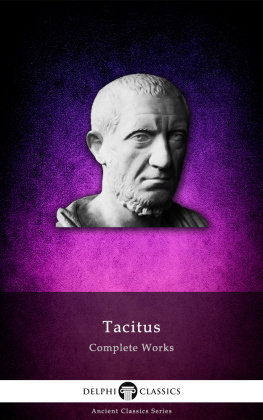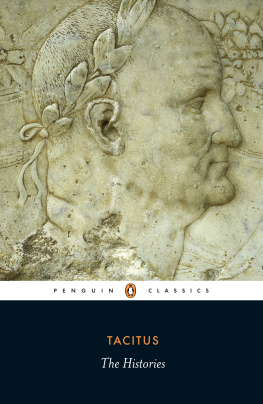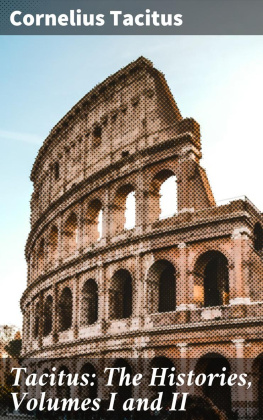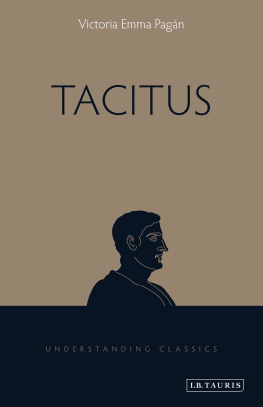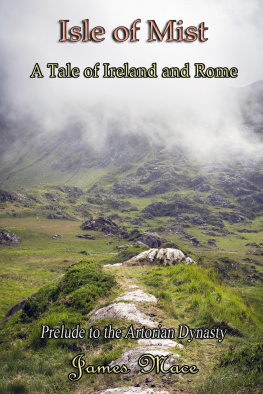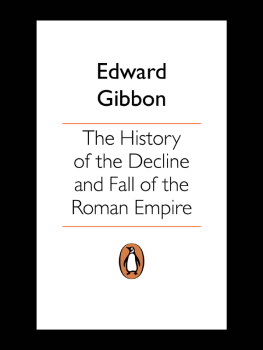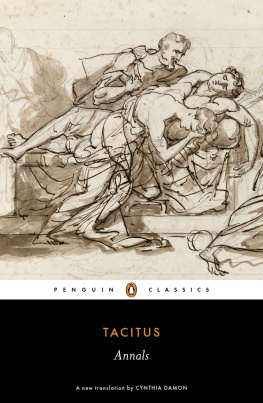Abbreviations
Roman Praenomina
A. | Aulus |
C. | Gaius |
Cn. | Gnaeus |
L. | Lucius |
M. | Marcus |
P. | Publius |
Q. | Quintus |
Ser. | Servius |
Sex. | Sextus |
T. | Titus |
Ti. | Tiberius |
Frequently Cited Ancient Authors and Works
Caes. | Julius Caesar |
Civ. | The Civil War |
Gall. | The Gallic War |
Dio | Cassius Dio, History |
Diod. Sic. | Diodorus Siculus, Historical Library |
Juv. | Juvenal, Satires |
Livy | Livy, History of Rome |
Mela | Pomponius Mela, Geography |
Plin. | Pliny (the Elder) |
NH | Natural History |
Plin. | Pliny (the Younger) |
Ep. | Epistles |
Pan. | Panegyric |
Ptol. | Ptolemy, Geography |
Strabo | Strabo, Geography |
Suet. | Suetonius |
Aug. | Divus Augustus |
Calig. | Gaius Caligula |
Claud. | Divus Claudius |
Dom. | Domitian |
Vesp. | Divus Vespasian |
Vit. | Vitellius |
Tac. | Tacitus |
Agr. | Agricola |
Ann. | Annals |
Dial. | A Dialogue concerning Orators |
Germ. | Germania |
Hist. | Histories |
Vell. Pat. | Velleius Paterculus, History |
Collections of Inscriptions and Papyri
AE | LAnne pigraphique (Paris: 1888 ) |
CIL | Mommsen, T., et al., eds., Corpus Inscriptionum Latinarum (Berlin: 1863 ) |
ILS | Dessau, H., ed., Inscriptiones Latinae Selectae (Berlin: Weidmann, 18921916) |
RIB | Collingwood, R. G., and R. P. Wright, eds., The Roman Inscriptions of Britain (Oxford: Clarendon Press, 196595) |
TV | Bowman, A. K., and J. D. Thomas, eds., The Vindolanda Writing Tablets (Tabulae Vindolandenses), vols. 2 and 3 (London: British Museum Press, 19942003) |

AGRICOLA and GERMANIA
PUBLIUS (?) CORNELIUS TACITUS was born c. AD 56, perhaps in southern Gaul (modern Provence); his father was probably of equestrian rank. By 75 he was in Rome, where he trained as an orator and eventually embarked on a senatorial career; in 76 he married the daughter of the consul Cn. Julius Agricola, whose biography he would later write. His swift rise up the ladder of senatorial offices indicates the favour of the reigning emperors; he reached the pinnacle of the senatorial career when he held the consulship (97). Although he continued to hold public office, serving as proconsul of Asia (112/13), he also increasingly devoted himself to writing historical works: Agricola in 978, Germania in 98 and A Dialogue concerning Orators probably in the first decade of the next century. By c. 110 he had completed the first of his major works, The Histories, covering Roman history from 69 to 96; his second major work, The Annals, covered the period from 14 to 68. Tacitus probably lived into the reign of Hadrian (11738), but there is no evidence for his later life or the date of his death.
HAROLD MATTINGLY was born at Sudbury, Suffolk, in 1884. After studying classics at Cambridge and Roman administrative history in Berlin and Freiburg, he took up a position in the department of printed books at the British Museum in 1910 and two years later was transferred to the department of coins and medals. He there began cataloguing the Museums holdings in Roman imperial coinage, a project that ultimately resulted in two monumental and indispensable reference works: Coins of the Roman Empire in the British Museum (6 vols., 192362) and Roman Imperial Coinage (10 vols., 192381). Among his other important works was a series of articles that completely revised the chronology of Roman republican coinage. After retiring from the British Museum in 1948, he settled in Chesham, Buckinghamshire, where he died in 1964.
J. B. RIVES received his PhD in Classics from Stanford University (1990) and taught at Columbia University and at York University in Toronto before moving to the University of North Carolina at Chapel Hill, where he is Kenan Eminent Professor of Classics. He is the author of Religion and Authority in Roman Carthage (1995) and Religion in the Roman Empire (2007), as well as numerous articles on aspects of religion in the Roman world. He has also published a translation, with introduction and commentary, of Tacitus Germania (1999) and, for Penguin Classics, has revised Robert Graves translation of Suetonius, The Twelve Caesars (2007).
AGRICOLA
that I would not have sought for an invective: so savage and hostile to virtue are our times.
decent might be encountered anywhere. We have indeed left an impressive example of subservience. Just as Rome of old explored the limits of freedom, so have we plumbed the depths of slavery, robbed by informers even of the interchange of speech. We would have lost our memories as well as our tongues had it been as easy to forget as to be silent.
Even we few who survive have outlived not only our fellows but also, so to speak, ourselves: so many years have been taken from our lives, years that have brought young men to old age, old men to the far end of lifes journey with no word said. Yet I shall find some satisfaction, even with unskilled and unpractised voice, in recording the servitude we once suffered and in gratefully acknowledging the blessings we now enjoy. In the meantime, this book, which sets out to honour my father-in-law Agricola, will be praised or at least pardoned for its profession of loyal affection.
I remember how he would often tell us that in his early manhood he would have drunk deeper of philosophy than a Roman and a senator properly may, if his mother in her prudence had not damped the fire of his passion. It was only natural that such a fine and upright soul should be attracted strongly, if not too wisely, by the fair ideal of fame in its higher and nobler aspects. In time, the discretion that grows with age restrained him; he came away from philosophy with its hardest lesson learned a sense of proportion.


